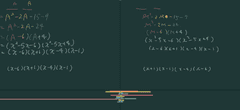
“FishTech” is a new technology which is a collaboration with fishery science, ocean science and informatics. Our goal is to develop FishTech for sustainable fishery which balances economic efficiency with resource management. We develop a new pattern recognition and data assimilation technology which employ domain knowledge of ecology of fish and oceanography, and analyze environmental data acquired in a process of fishing activities. Our technology supports short-term and long-term fishing operation providing suitable fishing spots, oceanographic conditions and fishery management plans.
Detail →




